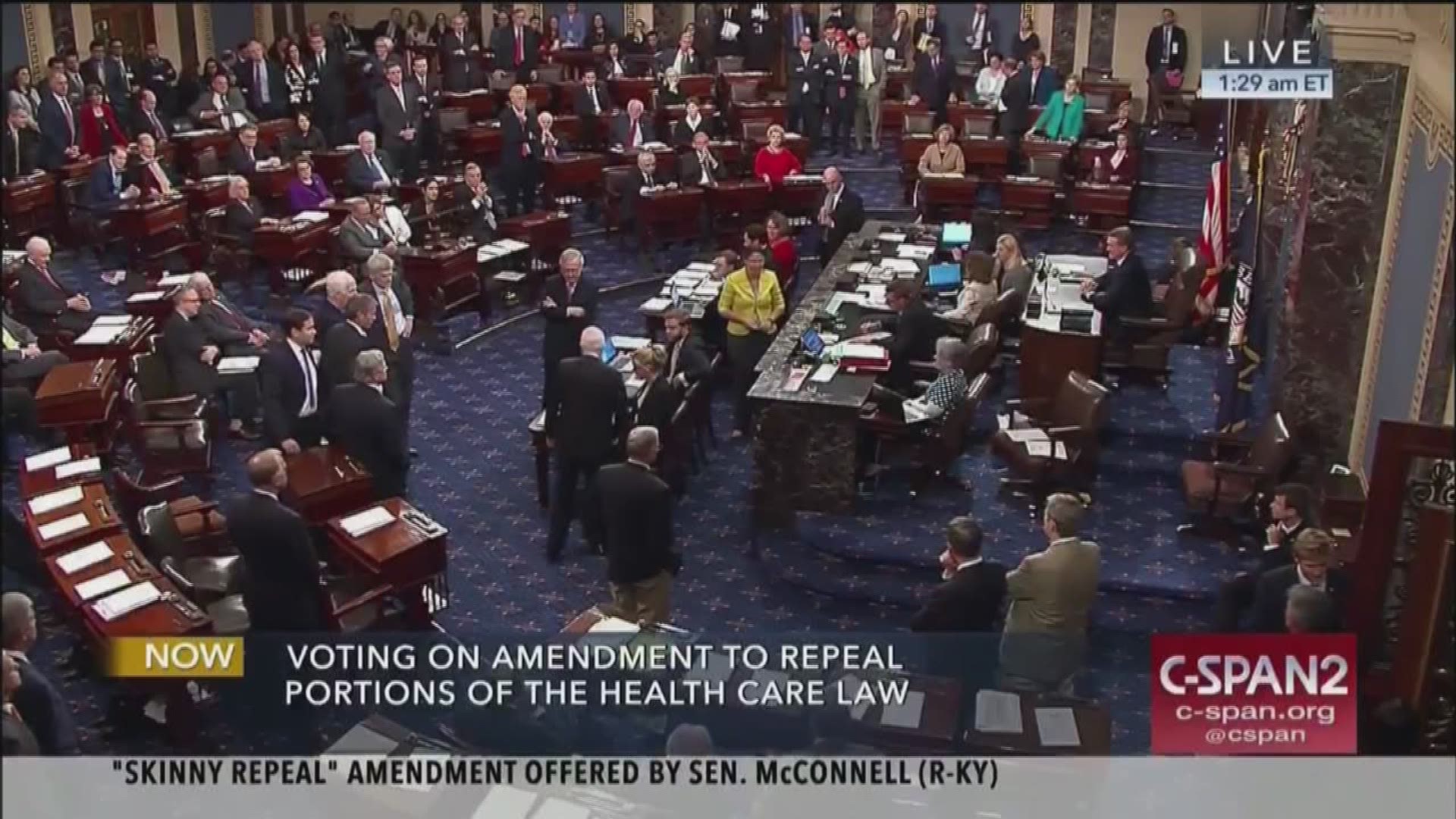In his 30-plus years representing Arizona in the U.S. Senate, John McCain was more of a guiding voice than a driving force. With a focus on defense and a presence that can hold any room, he held sway in negotiations while rarely being the architect of legislation.
On Saturday, Arizona's senior senator passed away after a 13-month battle with an aggressive form of brain cancer.
He left behind a lifelong legacy of service to his country.
Given the length of his Senate stay, McCain had plenty of memorable legislative victories, whether on his own proposals or those of other senators.
Why McCain was known as "the Maverick"
One of McCain’s first defining moments as a U.S. representative was his opposition of sending Marines to Lebanon during the Lebanese Civil War.
He was a strong supporter of President Ronald Reagan but as a congressman, McCain opposed the commander-in-chief’s decision to dispatch Marines to Lebanon in 1982. Reagan withdrew the servicemen after suicide bombers killed 241 of them on Oct. 23, 1983.
While tragic vindication is hardly a victory, McCain’s choice to oppose the president was the beginning of his legacy as a “maverick.”
McCain later went against his party again, voting against President George W. Bush’s proposed 10-year, $1.35 trillion tax cuts in 2001. Two years later, he voted against more cuts, citing the growing cost of the Iraq War.
But in 2006, McCain voted to extend the tax cuts, telling NBC’s “Meet the Press” that because of economic factors, voting against the cuts again would have been “tantamount to a tax increase.”
Strong supporter of the military
The following year, he was a strong champion of a 20,000-plus-troop surge in Iraq, which proved to be successful.
“The presence of additional coalition forces would allow the Iraqi government to do what it cannot accomplish today on its own,” he said at a Senate Armed Services Committee hearing. “Impose its rule throughout the country.”
That was only part of McCain’s aggressive stance when it came to military involvement in the Middle East. In the wake of the Sept. 11, 2001 attacks, McCain advocated for action not just in Afghanistan but elsewhere in the region.
“A nation has the right to defend itself, No. 1,” he said on Hardball with Chris Matthews on Sept. 12, 2001. “But No. 2, these organizations could not flourish effectively unless they had the help and assistance and safe harbor of these nations. And it isn't just Afghanistan — we're talking about Syria, Iraq, Iran, perhaps North Korea, Libya and others."
He also singled out Iraq as “stage two” of military operations in the Middle East in an appearance on the Late Show with David Letterman the next month.
Keating Five controversy and campaign spending
Two of McCain’s other high-profile legislative moments were related: His role in the Keating Five and the McCain-Feingold act to curb campaign spending.
The senator was one of the “Keating Five,” accused of helping savings and loan giant Charles Keating avoid regulation after receiving donations from him.
An investigation found no improper conduct by McCain, but investigators said he exercised poor judgment in the case.
Later, McCain partnered with Wisconsin Democrat Russ Feingold to put together a bill restricting campaign contributions and increasing transparency about where elected officials get their money from.
A long-time supporter of veteran's rights
McCain ran for president in 2004 and 2008, earning the Republican nomination in the latter election before being beaten by Democrat Barack Obama.
The senator was a major negotiator behind the Veterans Choice Act of 2014, which aimed to speed up and improve health treatment for veterans. The act came after the VA wait-time scandal, which centered on Phoenix as a particularly difficult location for veterans to receive appropriate treatment on time. The bill earmarked nearly $2 billion to improve the VA system.
But after the diagnosis came perhaps the most dramatic moment of the senator’s career: His thumbs-down on the repeal of the Affordable Care Act, also known as Obamacare. After weeks of whipping votes, Senate Republicans finally thought they had enough to pass a repeal, but in a late-night vote, McCain shocked the Senate by voting against his party, sinking the repeal of a policy inextricable from his opponent in the 2008 presidential race.
Over the years, McCain’s reputation as a maverick grew despite frequently voting along party lines, but the Obamacare vote may have cemented that freelancing legacy for the Arizona senator.
McCain voted in favor of confirming each U.S. Supreme Court nominee except for two – Obama nominees Sonia Sotomayor and Elena Kagan were confirmed without his vote. His 1987 yea vote for Robert Bork was not enough as Bork was rejected by a 58-42 margin.
Arizona’s senior senator was most recently the chairman of the Senate Committee on Armed Services in keeping with his record of advocating for the military. McCain also served as the chairman of the Indian Affairs Committee from 2005 to 2006 and before that was the Senate Commerce Committee chairman from 2003-2005.

